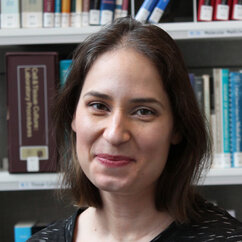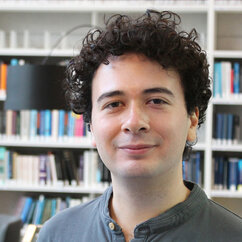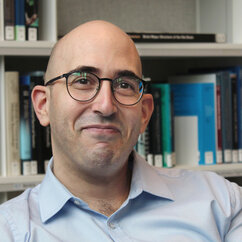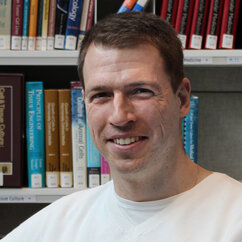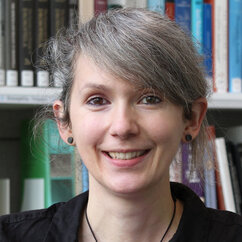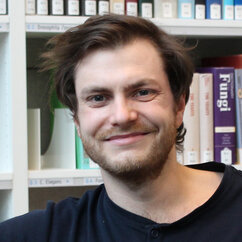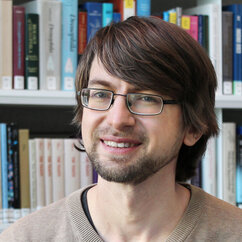IMP postdocs sweep Marie Skłodowska-Curie Fellowships
Seven postdoctoral researchers at the IMP received Marie Sklodowska-Curie Fellowships this year: Elad Bassat, Sebastian Isbaner, Katharina Lust, Daria Riabov Bassat, Diego Rodriguez Terrones, Matthias Vorländer, and Jakub Zmajkovic. With a further four Marie Sklodowska-Curie fellows at IMBA and two at GMI, the postdoc community at the Vienna BioCenter sets a record.
The Marie Sklodowska-Curie Individual Fellowship is Europe’s most prestigious postdoctoral fellowship and attracts about 10,000 applicants every year. It aims to enhance the creative and innovative potential of experienced researchers across fields, providing them with new skills, knowledge, and international exposure. Seven IMP postdoctoral researchers managed to secure their own fellowship despite the highly competitive nature of the programme.
Marie Skłodowska-Curie Fellows 2021
Elad Bassat, a postdoc with Elly Tanaka, joined the IMP in 2019 after he completed his PhD at the Weizmann Institute of Science (Israel) in the lab of Eldad Tzahor. In his project, he will investigate the role of the extracellular matrix and its enzymes in tissue regeneration in the axolotl.
Another member of the Tanaka Lab, Katharina Lust studies how the axolotl brain generates and integrates new neurons after a traumatic injury. She joined the IMP in 2018 after a PhD at Heidelberg University (Germany) in the lab of Jochen Wittbrodt.
Diego Rodriguez Terrones started at the IMP in 2020 and he did his PhD at the Institute of Epigenetics and Stem Cells at Helmholtz Zentrum München (Germany) in the lab of Maria Elena Torres-Padilla. He is also working in the Tanaka lab and seeks to elucidate the origins of regulatory sequences directing tissue regeneration in the axolotl.
Sebastian Isbaner joined Francisco Balzarotti’s lab in 2020, after a PhD in Physics at the University of Göttingen (Germany) with Jörg Enderlein. At the IMP, he develops new fluorescence microscopy techniques to investigate the mechanisms of DNA compaction.
Daria Riabov Bassat works with Clemens Plaschka since 2019, after she did her PhD at the Weizmann Institute of Science in the lab of Ami Navon. In her project, she is studying the biogenesis of spliceosome components using cryo-Electron Microscopy.
After a PhD in the lab of Christoph Müller at EMBL in Heidelberg (Germany), Matthias Vorländer joined the Plaschka Lab in 2020. He is going to study mRNA export in human cells using a combination of cryo-Electron Microscopy and Super Resolution Fluorescence Microscopy, in collaboration with the Balzarotti Lab.
Jakub Zmajkovic joined the lab of Johannes Zuber at the IMP in 2019, after he did his PhD at the University Hospital Basel and the University of Basel with Radek Skoda. In his project, he aims to identify vulnerabilities and novel drug targets in acute myeloid leukaemia with a functional genomics approach.
The success of IMP postdocs highlights their ambition and the quality of their work. The Marie Skłodowska-Curie Individual Fellowships will support their research and professional development for the next two years.
Further Reading
Postdoc opportunities at the Vienna BioCenter
Marie Skłodowska-Curie Actions of the European Union
